Is drag going mainstream a good thing?
By Will Stroude
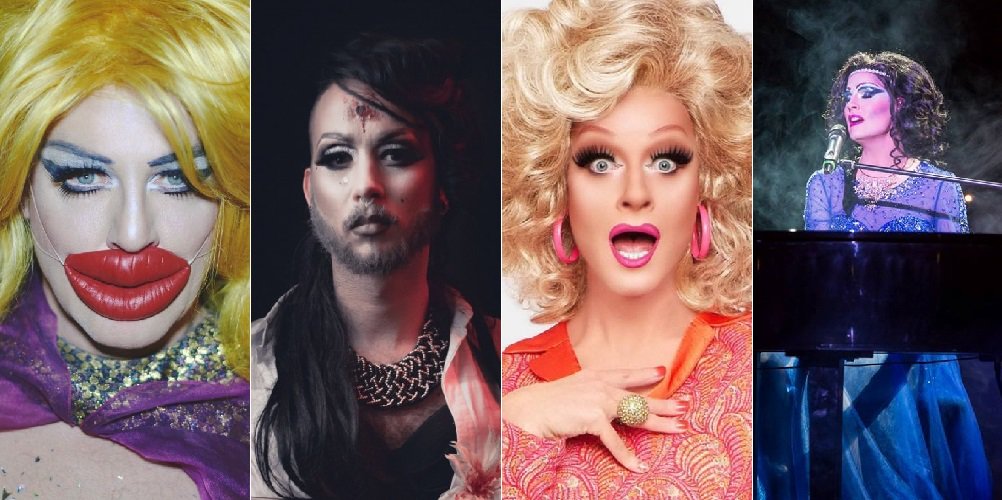
RuPaul’s Drag Race
, Panti Bliss and Sink the Pink are just a few of the reasons drag has been thrust into the mainstream recently. But while this new found notoriety has been great for drag’s profile, does bringing a cult and subversive art form to a wider audience runs the risk of sanitising it? Attitude’s Chris Godfrey spoke to various drag queens to see if the surge in drag’s popularity meant it was in danger of losing its bite…
Panti Bliss
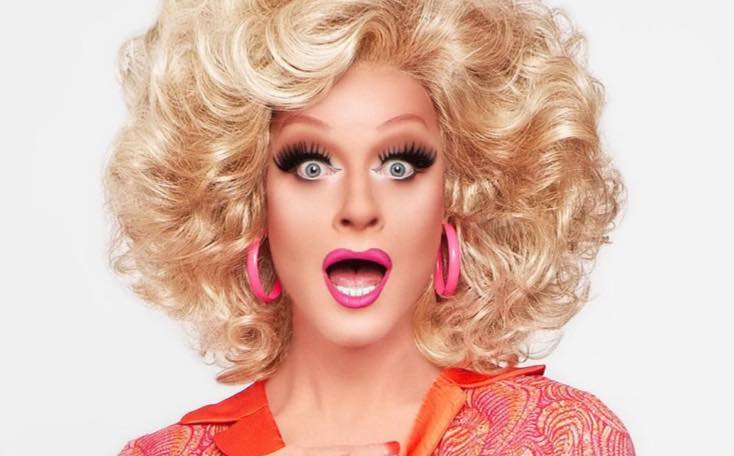
Is drag going mainstream a good thing? Well, I think like nearly everything in life, the answer is grey. Obviously it’s an art form I’m interested in and especially if you’re someone who is trying to make a living out of it, you want to reach as many people as possible. So on that level it’s a good thing. But I do think in order to reach as many people as possible, it has to be slightly defanged.
What happens is it becomes less underground and less discombobulating. They’re the things that attracted me to it in the first place. I think a man dressing up in the gender signifiers of female is a radical act in itself. Sometimes, especially the younger drag queens, they don’t even realise it’s a radical act.
So I think even in the mainstream it remains a radical act but in order to have mainstream appeal, a lot of the time that radicalism ends up being played down. It’s something that I personally have had to struggle with a lot in the last few years. Because here in Ireland Panti has become an establishment figure. Panti is opening science fairs, getting honorary doctorates giving her opinion on serious political talk shows, this kind of thing. And while I am glad that now the mainstream is taking the voice of somebody like me seriously, at the same time I struggle with that because can I still be an underground, radical, discombobulating performer who is saying discombobulating things and at the same time be on the cover of the radio times?
It hasn’t affected my live performance simply because I have a made a very conscious decision not to allow it. Sometimes I might write a joke and I’m a bit like ‘oh god can Panti say that now’. And I have to very consciously say ‘yes, she bloody well can’. Where it has affected things is when you are appearing in the mainstream, because often the mainstream maybe look at you as sort of a representative voice of the community, which isn’t of course true. But I’m aware of that responsibility. So I do have to be a bit more politic when speaking to mainstream outlets.
What I do think is the influence of RuPaul’s Drag Race (RPDR) in particular is really marked, especially amongst younger drag queens. I think RPDR is really super fun, I watch it and get great fun out of it and everything, but it is a television show. It’s not actually about drag per se. And in order to make it the best television show they can, they have certain parameters, and those parameters exclude some kinds of drag. For example, my favourite drag performers are people like Jonny Woo and nuts like that. That’s what I love. It’s not necessarily what I do, but I love that kind of nutter and RPDR doesn’t have a space for that kind of nuttery.
I can see the influence of that in younger queens. they all look the same, they all ahve this Americanised gloss about them these days. And it’s rare that you see a 21-year-old drag who’s rubbing glitter in his beard, though there are pockets of that of course.
I remember when RuPaul first exploded in the nineties it was a time when you couldn’t go to any corporate event without a few drag queens hanging around handing out canapes. It was a time when we are all working a lot and you were getting a lot of money and a lot of corporate gigs. That’s all great right now but I know if we have this conversation in 3 years’ time it will be a very different perspective because it will not be as popular then. It’s cyclical and part of me can’t wait for a few years’ time, when it’s back to where I think it is most comfortable, which is as an underground art form.
Coco Fontaine
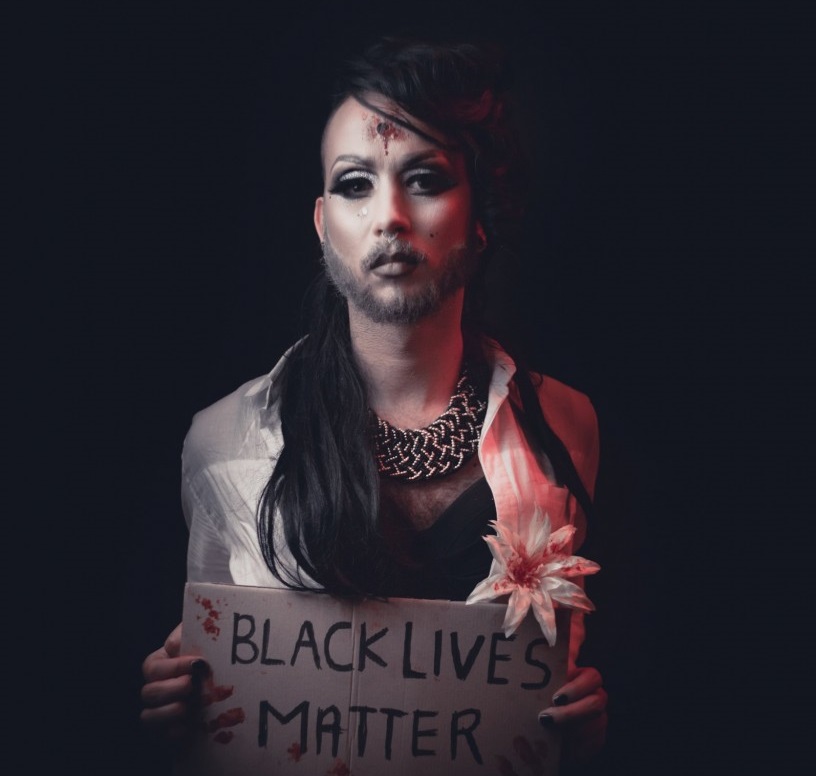
I think that drag really depends on the practitioner, and what that drag queen is doing with their craft. It can be argued drag is diluted when it goes mainstream, as mainstream drag avenues are going to be policed more, everyone becomes an expert on what drag is and what is acceptable. I was guilty of this about four years ago when my opinion on drag was narrow minded and very much focused on aesthetics and I’m still reassessing what drag means to me. Mainstream consumption means lots of people get to have an opinion on something they don’t always understand. But I don’t think that dilutes the actual essence of drag. Drag at its core is such an inclusive and large pool of diversity, it’s really hard to pinpoint that and deem whether it is more or less affective.
Sometimes we look at American drag, at RuPaul’s Drag Race, and we look at its popularity and what that’s doing to the public consciousness for drag. I think it’s a narrow representation of specific tribes, there’s nothing wrong with that but it’s not inclusive and it’s a relatively new take on drag in the UK. But if we look at what British drag is, it’s always had a mainstream presence, it’s always been in the public conscience; you’ve always had pantomime, you’ve always had cabaret variety on TV, and what they were doing with drag then is no different to what they’re still doing with drag now, it’s still relevant.
I guess if you’re looking at the grittier underbelly of drag and you’re looking at people like Leigh Bowery and the Blitz Kids and people that were really using drag and gender as an expression in the eighties and nineties, that’s still happening. I don’t think that just because drag is mainstream, that it’s any less impactful. I guess that you’ve got an influx of the more diluted drag in the sense that boys go out in makeup and wear wigs, and that there’s a massive influx of that because of RPDR. I still think that’s fine. I think drag is an exploration of the flaws of gender in its truest role, whether on the stage, in your bedroom or out in a nightclub. Others will no doubt disagree and that’s what drag should do, cause discomfort and discourse. The very essence of what drag is and what it does as a political statement hasn’t died. Especially when I go out on the drag scene I can see it’s still there.
I did a drag look at Sink the Pink a few weeks ago and I used that opportunity to do a Black Lives Matters look. I did this to make a political comment on racial oppression in a white-dominated space that I felt was inherently problematic, one which used black bodies and black culture for profit on countless occasions. So many times nights have been themed on the back of “exotic” cultural themes and has labelled itself as an inclusive queer space but failed to represent queer people of colour. People responded to it by asking why I was ruining their “fun”, and I think that answers why such a look needed to be done.
Drag is used as a way of making political statements or to fight against accepted ideas all of the time. So I guess it really depends on the drag queen, what the drag queen says with their drag and what they want to do with their drag. Just because it’s more mainstream that doesn’t necessarily take away the power that a drag queen has with their art form.
Gareth Joyner AKA Myra Dubois
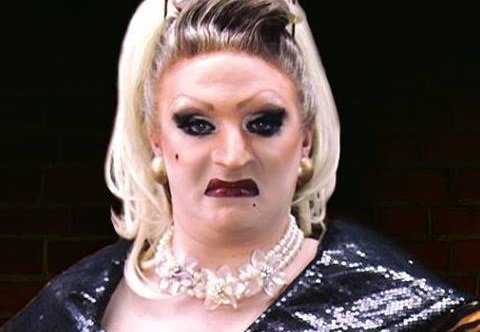
I think we’d first have to define what you mean by ‘drag’. Is it simply ‘A man dress’ like Brendan O’Carrol in Mrs Browns Boys? Are we talking men dressed as women and its proximity to the gay scene, i.e. gay pub drag acts, or are we widening our definition to a more up to date meaning, where drag has become more of a theatrical conversation between gender and clothing?
It’s also worth noting before embarking on any kind of discussion which side of the Atlantic we’re focusing on, because the British and the American styles of drag are both very different. That’s before we’ve even delved into the different styles of drag that exist within those two camps, if you’ll pardon the pun.
Generally speaking, I think drag going mainstream is a good thing provided it’s handled correctly. The recent documentary ‘Drag Queens of London’ was horrific. I don’t mean anything personal to the queens involved, who I all know personally and respect as colleagues and friends, but they were left to the mercy of editors and what we do was painted out to be void of any skill of talent. It made out that all we do is fall from taxi to taxi blind drunk.
But when La Voix appeared on Britain’s Got Talent, and when Myra appeared on The John Bishop Show, they were treated with respect and were provided with the tools with which to portray their skills to the general public at their best. I remember sitting watching La Voix on BGT feeling proud to call her a colleague.
And we do need more visible drag in the mainstream. We’ve had it before, especially the sort of drag to emerge through gay culture. Once upon a time you’d have been able to catch a glimpse of Divine on Top of the Pops, and my generation grew up with Lily Savage, Julian Clary and The Divine David on television. That could happen again, and it should.
John Sizzle
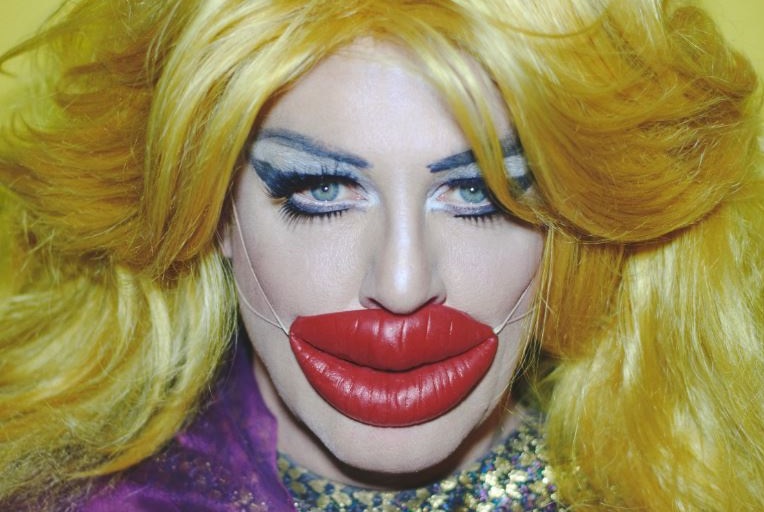
I do quite a lot straight gigs and a couple of years ago they wouldn’t have had much knowledge about drag. But what I’ve sensed now is that people react to me in a different way than they would’ve before and they talk to me in this drag language that is pretty dry. I’m seen as a bit of a toy, whereas before you were like a scarecrow to the heterosexual crow. They would be slightly fearful of you as you were seen as being something other. Now they have a language, there’s a discourse that they know how to use in order to interact with you. But again that’s not a bad thing. My days of winding people up and being so punky about it are now more behind me.
People would’ve probably complained back in the day when me and Jonny Woo were running around bunging half a bucket on our head and putting on a really nasty pair of flip flops, but a lot of people were doing what we were doing. People were joining the band wagon, or the circus if you like. It all became very samey, but that’s club culture.
So if drag is going more mainstream I’m indifferent to it, to be quite honest. I think that everything goes in strange cycles and there’s a kind of a domino effect; if it gets even more mainstream it tends to cause the underground to do something even more subversive.
I love it when people give birth and then breast feed the baby and then eat its head. I love all that. I love it when people will appear and then turn into bats halfway through. But I like old drag too. There’s a softness to it, there’s a level of entertainment and a skill that has got a bit lost and a bit ignored in the hyperbolic dramatic show business of it all. It’s all super sassy and every inch is done; everything is chucked into the pot and you’re exhausted by the end of it.
At The Glory we do see that super-polished, super-femme drag in LipSyncy1000. It’s a very clear starting point for a lot of young people. Not everyone has a massive cultural scope – that comes as you get older – so there’s nothing wrong with grabbing what’s around you and mimicking it, playing with it and using it as a springboard. It’s fun and no one owns drag. It’s no one’s business but the people doing it and what they want to do with it.
And you certainly can’t keep everything underground. If it’s entertaining, it will rise up and the media will grab it and we’ll self-promote it ourselves too. There’s something to be said about it being successful and about that being a good thing. Obviously it’s gay culture, that’s great isn’t’ it? It’s being shown far and wide. It’s something to celebrate.
Vanity Von Glow
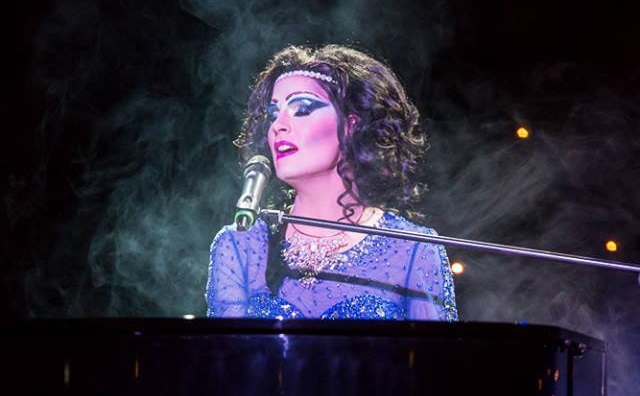
What is the definition of ‘mainstream? Does that just mean that straight people are now loving queer drag? If that’s the case, then in some ways drag must not be biting hard enough. Someone once said that great comedy comforts the afflicted and afflicts the comforted. It’s the same with drag. Counterculture is at its best when it is making fun of the status quo, not participating in it. That is the DNA of drag. So if it fails to meet that criteria it can be disappointing.
That said, there are other ways to be mainstream, you could be like Dame Edna Everage, one of the greatest comic creations in the world, and still be thoroughly subversive towards the middle class, for example. But I would put any success of Dame Edna’s down to Barry Humphries being a fantastic performer, and he broke the ‘mainstream’ decades ago by being great on stage rather than due to a sudden interest from the general public in men dressing as women. I aspire to success on my own merits rather than to ride a wave of brainless populism to the top.
The drag currently prevalent in the mainstream doesn’t seem intelligent to me. I think the soundbyte obsessed, finger snapping fanatics of reality TV drag enjoy the infantile elements of dressing up and behaving ‘outrageously’ or unaccountably in disguise. I’m sure it’s sassy and fun (I don’t watch it), but I find RuPaul’s Drag Race to be a numbing, mindless fixation of my narcissistic generation. I don’t think it’s participants are often particularly intelligent, and I don’t think it’s for particularly intelligent people.
I mean I could be wrong – people used to say that about the X Factor back in the day, but surveys found that a considerably higher proportion of regular viewers were degree educated than with any other big family show. I guess it showed that viewers didn’t watch the show earnestly or obliviously but with a clear idea of how ridiculous and formulaic it was. These people were sort of ‘ironic viewers’ really, and I suppose that could be the audience of RPDR. I’m not saying drag performers have to be intelligent to be important, useful or to be relevant. But where the twangy faux-American ‘yas kween’ kids are concerned, there’s an argument that a lot of the drag they are celebrating is for stupid people. If it’s mainstream amongst the stupid that’s fine with me, I don’t really feel that affects me and my show. I don’t feel that the work of smart, thinking acts like Myra Dubois are in any way devalued just because there are some teenagers having fun with dress-up and being silly, no. Drag is fun, let them enjoy it while the trend lasts.
More stories:
Diana Ross injured in limo crash, performs show anyway
World’s most powerful LGBT people named in Power 50 list
